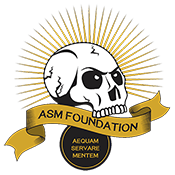The Knuckledragger’s Guide
To Allostatic Load
The goal of the Knuckledragger’s Guide to Allostatic Load (KGTAL) is to offer First Responders a method for determining their overall physical and mental well being. By increasing this awareness, individuals will have an easier time managing stress demands of operating as a First Responder.
What Is
Allostatic Load?
Allostatic Load, as it pertains to First Responders, is: an individual’s capacity to carry the physiological and neurological toll one must pay while working and operating in a stressful environment, for extended periods of time.
What Determines
Allostatic Load?
There are a multitude of elements that determine an individual’s allostatic load. Prior history of TBI, childhood trauma and genetic variables play a significant role. Prolonged stress, sleep deprivation (shift work) and trauma all contribute to our allostatic load as First Responders.
How To Determine
Allostatic Load
While there is no absolute test for determining allostatic load, we designed The Knuckledragger’s Guide To Allostatic Load to help First Responders determine how they feel on any given day and to determine deficiencies in their practices that will increase their load capacity and help them heal.
KGTAL
Practices: List how often you are performing each practice.
- Breath Work:
- Hot/Cold Exposure:
- Exercise:
- Diet/Nutrition/Supplementation (80/20 split):
- PT/Mobility/Yoga:
- Journaling:
- Gratitude/Faith:
Indicators: Rate each indicator from 1 being good to 10 being the worst you have experienced.
- Cognitive Impairment: Short- or long-term memory, problem solving, fogginess, gaps in memory, etc.
- Irritability
- Physical Discomfort: T-spine/Shoulders/Neck, Hips, Knees, Ankles, etc.
- Depression
- Anxiety
- Tinnitus
- Gut Discomfort
- Insomnia
Total Score: Add the total score you estimated from the ‘Indicators’ list.
If under 40, keep doing what you’re doing. If over 40, determine what needs to be adjusted to lower your score.
Better dietary habits, changing up your exercise and breathwork, and/or PT/Yoga/Mobility will likely help you to lower your score.
Reach out if you need help.
